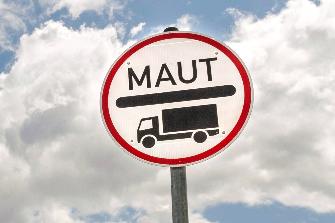Toll for vehicles over 3.5 tonnes
Questions and answers
-
No, vehicles with a technically permissible maximum laden mass (TPMLM) of 3.5 tonnes or less are not and will not be subject to tolls. From 1 July 2024, the toll requirement will only apply to vehicles with a TPMLM of more than 3.5 tonnes.
-
No, vehicle combinations are only subject to tolls if the towing vehicle (motor vehicle) has a technically permissible maximum laden mass of more than 3.5 tonnes. This will also not change from 1 July 2024.
-
Immediately after installing the OBU, please check that the weight setting in the OBU is set to "< 7.5 tonnes". This will ensure that no tolls are charged until 30 June 2024 and that tolls are automatically charged from 1 July 2024.
-
Vehicles with a Technically Permissible Maximum Laden Mass of more than 3.5 tonnes will pay tolls for the use of federal trunk roads from 1 July 2024.
This includes both solo vehicles with a Technically Permissible Maximum Laden Mass of more than 3.5 tonnes and vehicle combinations whose motor vehicle has a Technically Permissible Maximum Laden Mass of more than 3.5 tonnes.
Trade vehicles are exempt from the toll.
-
In addition to the tried-and-tested DIN slot OBUs, Toll Collect provides windshield OBUs for vehicles weighing more than 3.5 and less than 7.5 tonnes.
-
All Toll Collect OBUs work in the same way and deliver the same results. installation of a DIN slot OBU.
-
In order to be able to use an OBU, you must first register your company and your vehicles subject to toll with Toll Collect.
Once you have received confirmation of your vehicle registration from Toll Collect, you can make an appointment with an authorised service partner to have an OBU installed. There are around 1,300 Toll Collect-trained workshops throughout Germany and in other European countries. You can find Toll Collect service partners in your region using our service partner search .
-
Toll Collect Windshield OBUs remain the property of Toll Collect GmbH at all times.
-
Toll Collect does not currently charge an OBU deposit.
-
The price for the installation of an OBU is determined by the service partner workshops. The costs depend on the specific installation situation in the vehicle.
-
Please make an appointment for OBU installation with a service partner of your choice as soon as possible. You can find an overview of the Toll Collect service partners her .
-
Initially, Toll Collect will provide windshield OBUs for vehicles with a technically permissible maximum laden mass of more than 3.5 and less than 7.5 tonnes.
In special cases, the service partners can agree with Toll Collect that a windshield OBU will be installed in a vehicle weighing 7.5 tonnes or more.
-
Vehicles that do not have a free DIN slot are fitted with a windshield OBU.
-
Toll Collect OBUs (DIN slot and windshield) are installed by the service partner. The quality of the installation has a decisive influence on the long-term reliable and low-maintenance function of the OBU.
-
Toll Collect has decided to have all OBUs installed by trained personnel at service partners. High installation quality ensures reliable and low-maintenance operation of the OBU in the long term, for example because the cable to the OBU is permanently installed and the connection cannot be accidentally disconnected.
-
It is possible to connect Windshield OBUs via the cigarette lighter. However, Toll Collect recommends hardwiring windshield OBUs. This ensures that the connection cannot be accidentally disconnected.
-
No, the existing toll exemption rules will not change. The transport of agricultural products customary in agriculture and directly associated empty journeys by farmers for their own purposes are generally toll-exempt in accordance with Section 1 (2) sentence 1 no. 6 of the German Federal Trunk Road Toll Act (BFStrMG) in conjunction with Section 2 (1) no. 7 of the German Road Haulage Act (GüKG). So if an agricultural business transports its own primary production products for sale at a market, the journey is generally toll-exempt.
However, the toll exemption does not apply, for example, to the transport of goods that do not qualify as agricultural or forestry products or to the transport of products that have already been permanently processed. You can find up-to-date information on this on the website of the Federal Logistics and Mobility Office.

